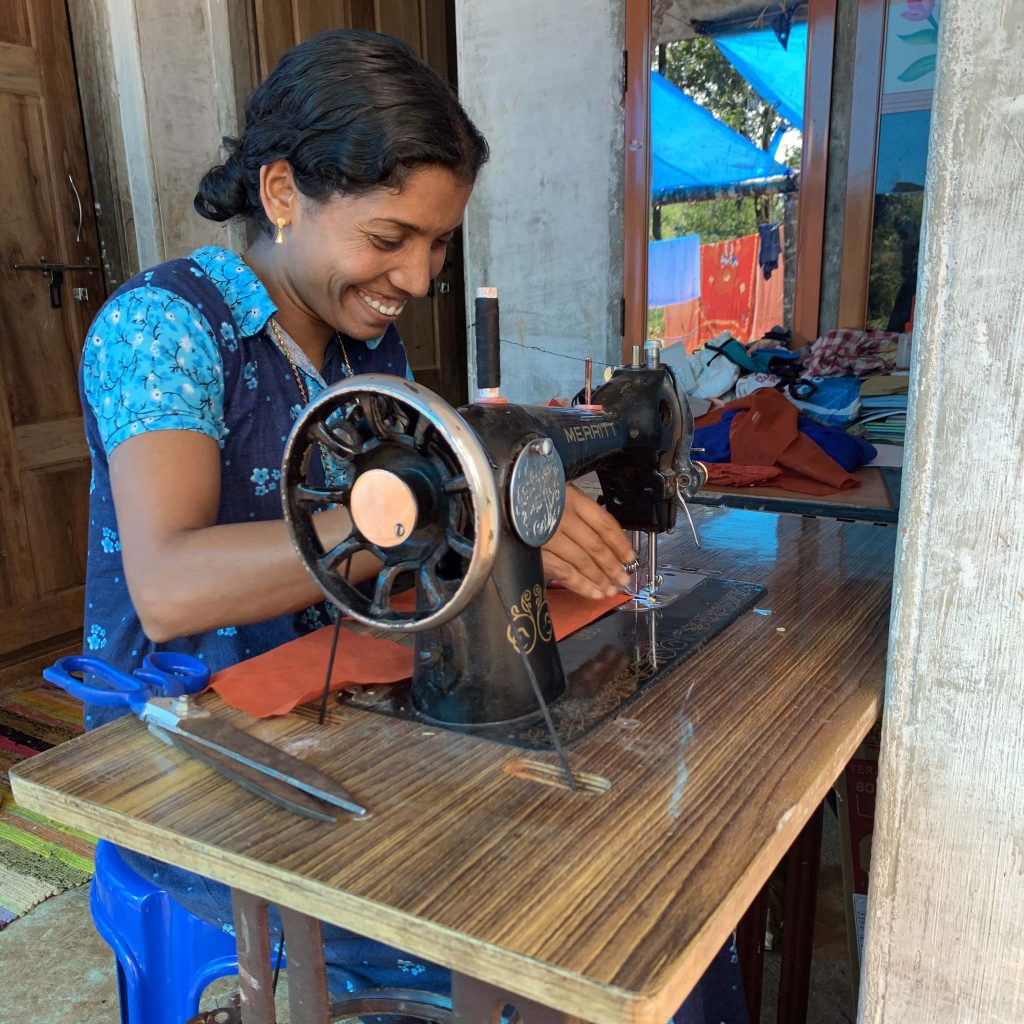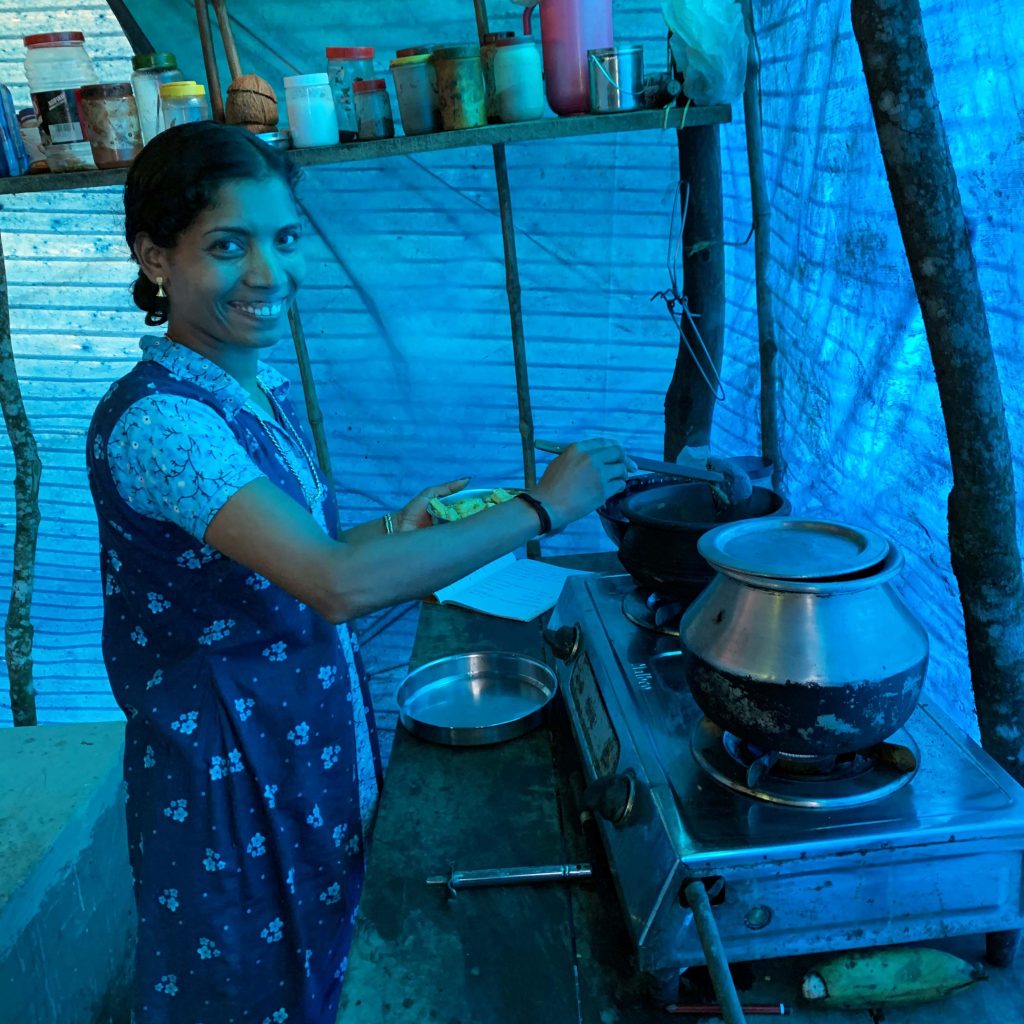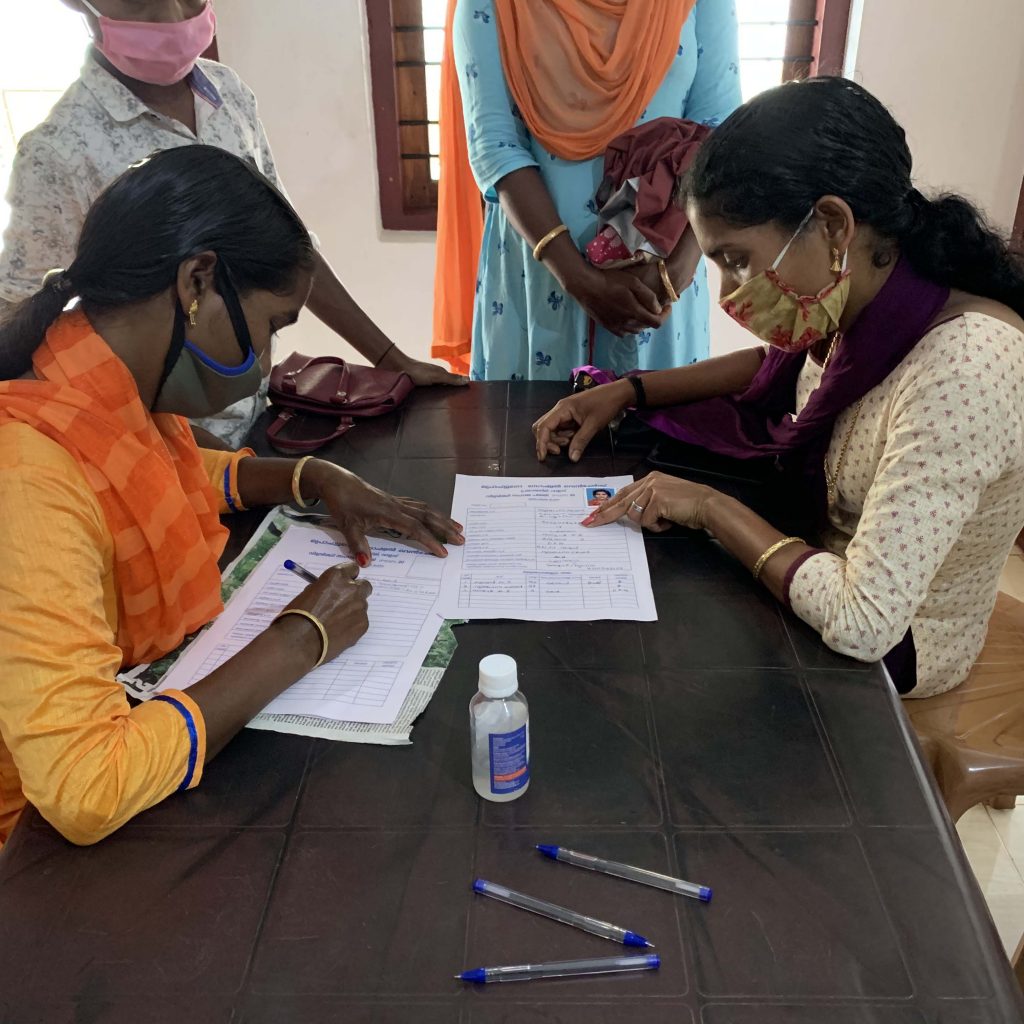Every day, Sunitha Chandran wakes up at 5:00 am to begin the day’s cooking and cleaning. At 8:00 am, she heads out for a full day of farming activities. By 5:30 pm, she returns home to finish her household duties, look after her two children, Abhinav and Anadhu, and spend time with her husband.

Like many women of Wayanad, Sunitha’s daily routine reflects a staggering work ethic. But somehow, on top of all of her other responsibilities, Sunitha is still determined to finish her education. Back in 2005, during her Plus 1 or Pre-Degree studies (the US equivalent of 11th grade), she failed a math exam, and thus never completed her schooling. Also around this time in her life, her family had purchased cows and needed her help with their care. However, after her marriage, she learned that her sister-in-law was enrolled in a continuing education program. Inspired by her motivation, Sunitha decided to follow suit. On top of all of her family and farm responsibilities, she gained a leadership position with the local government body (the panchayat) and is currently studying to complete high school.
As her packed daily schedule demonstrates, Sunitha has little free time to study. But she is what her fellow community members call “a miracle worker.” She props up her notebook in her kitchen and manages to study whilst she cooks and cleans. Her method is that she reads a paragraph, repeats it back to herself whilst she does a task, then repeats this process again and again in a cycle of truly astounding multitasking. Sunitha says that she is determined to finish her education. “I want to set a good example for my children and my community,” she says.

Sunitha is a proud member of the Edathana Kuricha tribal community, which practices a unique form of Hinduism. The community is incredibly tight-knit with strong relationships flourishing between families. As a result, she says that her tribe mostly “keeps to themselves.” They share a robust culture and a host of rituals that are central to their collective identity. They also share a commitment to preserving these longstanding traditions in an ever-changing world.
One of her favorite tribal traditions is called vasyasariyich kaliam, which is a coming-of-age ceremony for young women. When a young woman menstruates for the first time, she is celebrated. The community brings her special foods, such as ghee (clarified butter), sesame seeds, and jaggery (a type of sugar), as well as ayurvedic medicines meant to increase blood flow and promote good health. She is also gifted jewelry or “ornaments” (anklets, chain, rings, etc.). This is seen as a sacred rite of passage and important time in a young woman’s life.
In addition, this past February, Valad (the town closest to Profugo) hosted its Utsava, which was a ten-day festival honoring different Hindu gods. These several days of festivities boasted various music and dance programs, processions, rituals, and delicious food, but one of the highlights of the festival was the Thirvathira dance. A hundred women, of all ages, donning matching blue and white sarees performed a beautiful, coordinated dance in front of a crowd of thousands. It was a gorgeous site to behold. Sunitha participated in the dance. She had never danced in public before and was initially weary of performing. Still determined to participate, she spent several weeks learning the dance off of YouTube and practicing with her neighbors. When she ultimately danced in the Thirvathira, she said she felt “an ecstasy” from the rush of performing. Her supportive family watched with a great deal of pride, and she holds this experience dear to her heart.

This year, Sunitha became involved with Profugo and has quickly become as an asset to our organization. She helps lead the Edathana Kuricha corner group, served on our sustainable tourism committee, and recently became a Community Resource Ambassador. Through this program, she will receive trainings to share newfound skills and knowledge with her community (when it is safe to resume such activities). She said that whilst she is proud of her tribal community, she does not have many opportunities to forge relationships with those outside of her tribe. Sunitha expresses appreciation for Profugo’s community development activities because she cherishes the opportunity to connect to, learn with, and grow from a wider group of people. Sunitha’s unwavering fortitude to make the most of her life, and whatever opportunities she can find, is inspiring and hopeful.
From someone whose very existence emanates hope to all who witness her, we were curious to understand what gives Sunitha herself hope, especially with the current challenges of a pandemic and its financial hardship. Without hesitation, she simply responded that she refuses to feel fear and knows that she can face whatever situation may come. With a firm, graceful resolve, she stated, “I can save myself.” A powerful reminder of our human agency. As challenges grow even more insurmountable, Sunitha is a shining example that we still be masters in our own lives. May we follow her lead and persevere, no matter what obstacles we may face.

Leave a Reply
You must be logged in to post a comment.